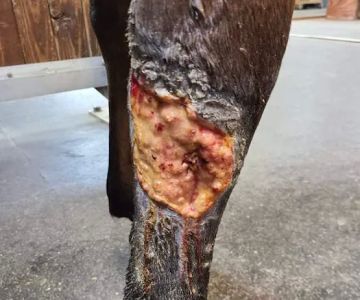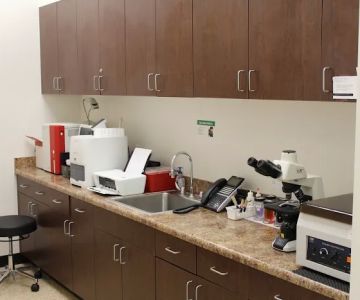How to Be a Veterinarian Kit: A Complete Guide for Aspiring Veterinarians
Becoming a veterinarian is a dream for many animal lovers who are passionate about caring for pets, wildlife, and farm animals. However, the journey to becoming a vet can be long and challenging, requiring extensive education, training, and the right set of tools. One essential component of the veterinarian’s toolkit is the "veterinarian kit." As an aspiring vet, understanding what tools are needed and how to use them effectively can give you a head start in your career. In this guide, we’ll explore how to become a veterinarian, the importance of a veterinarian kit, and the tools that are most commonly used in the field.
1. What Is a Veterinarian Kit?
A veterinarian kit is a collection of essential tools that a veterinarian uses for diagnosing, treating, and caring for animals. These kits vary depending on the specific field of veterinary medicine (e.g., small animal, large animal, or exotic animals) but typically contain a variety of medical instruments necessary for examinations and treatments. Some of the tools in a basic veterinarian kit include:
- Stethoscope: Used for listening to heartbeats and lung sounds, this is one of the most basic and important tools for a vet.
- Thermometers: Accurate temperature readings are crucial for diagnosing infections or health conditions in animals.
- Needles and Syringes: These are used for administering vaccines, medications, and fluids to animals.
- Scalpel and Surgical Scissors: Essential for performing surgeries and procedures that require incisions.
- Otoscope and Ophthalmoscope: These tools allow vets to examine ears and eyes for infections or abnormalities.
- Bandages and Gauze: Wound care is crucial for treating injuries and preventing infections in animals.
2. The Importance of a Veterinarian Kit in Your Veterinary Career
As a veterinary student or professional, having the right tools can make a significant difference in your ability to care for animals. A well-stocked veterinarian kit not only ensures you can perform your duties efficiently but also helps to establish your credibility and professionalism. Whether you're working in a veterinary clinic, an animal shelter, or out in the field, having a proper kit is essential. Additionally, a veterinarian kit enables you to diagnose and treat animals accurately, offering the best possible care to your patients.
3. How to Choose the Right Veterinarian Kit for Your Career Stage
When starting out as a veterinary student or newly licensed veterinarian, it’s essential to choose a veterinarian kit that fits your specific needs. Here are some tips to help you choose the right kit:
- Beginner Kits: If you're just starting out, a basic kit that includes the essentials (stethoscope, thermometer, syringes, and basic diagnostic tools) is a great place to start. You can upgrade your kit as you gain experience.
- Specialization Kits: As you specialize in a particular area of veterinary medicine (e.g., surgery, dentistry, or exotic animal care), you may need specialized tools tailored to that field.
- Portable Kits: For veterinarians who work in mobile clinics or need to travel for house calls, a portable kit that’s easy to carry and includes only the most necessary tools may be ideal.
4. The Role of Veterinary Technicians and Their Kits
While veterinarians are the primary medical professionals responsible for diagnosing and treating animals, veterinary technicians play a vital role in supporting these efforts. Veterinary technicians often have their own kits, which may include tools for administering anesthesia, performing lab tests, and assisting with surgeries. These kits are designed to complement the veterinarian’s kit and ensure that the entire team can provide comprehensive care. If you’re aspiring to be a veterinary technician, it's important to familiarize yourself with the tools in your own kit and understand how they work in conjunction with the veterinarian's tools.
5. Where to Get Your Veterinarian Kit
As a veterinary student or professional, there are several ways to obtain your veterinarian kit. Many veterinary schools offer starter kits to students as part of their curriculum. Additionally, several companies specialize in selling veterinary kits, which can be customized based on your specific needs. You can find these kits online or at stores that cater to veterinary professionals. When choosing a kit, make sure to buy from reputable suppliers to ensure that the tools are high-quality and built to last. Investing in a durable, well-made kit can save you time and money in the long run.
6. Practical Tips for Using Your Veterinarian Kit
Once you have your veterinarian kit, knowing how to use the tools effectively is key to providing excellent animal care. Here are some practical tips for using your kit:
- Familiarize Yourself with Each Tool: Take the time to learn the function of each tool in your kit and practice using it. This will help you feel more confident when performing procedures.
- Keep Your Kit Clean and Organized: Regularly clean and sterilize your tools to prevent cross-contamination. A well-organized kit will make it easier to find the tools you need during an emergency.
- Stay Updated: Veterinary tools and techniques are constantly evolving. Stay informed about new tools and technologies to ensure that your kit is always up-to-date.
7. Becoming a Veterinarian: The Long Road Ahead
Becoming a veterinarian is a rewarding and fulfilling career, but it requires dedication, education, and hands-on experience. Along with the right veterinary kit, you’ll need to complete a bachelor’s degree, gain clinical experience, and attend veterinary school. After graduating, you’ll need to pass licensing exams and continue to improve your skills throughout your career. The road to becoming a veterinarian can be challenging, but the ability to make a positive difference in the lives of animals is well worth the effort.











